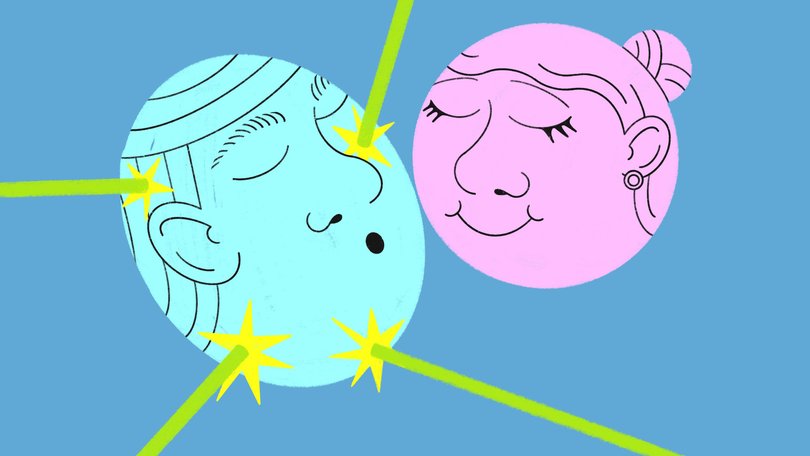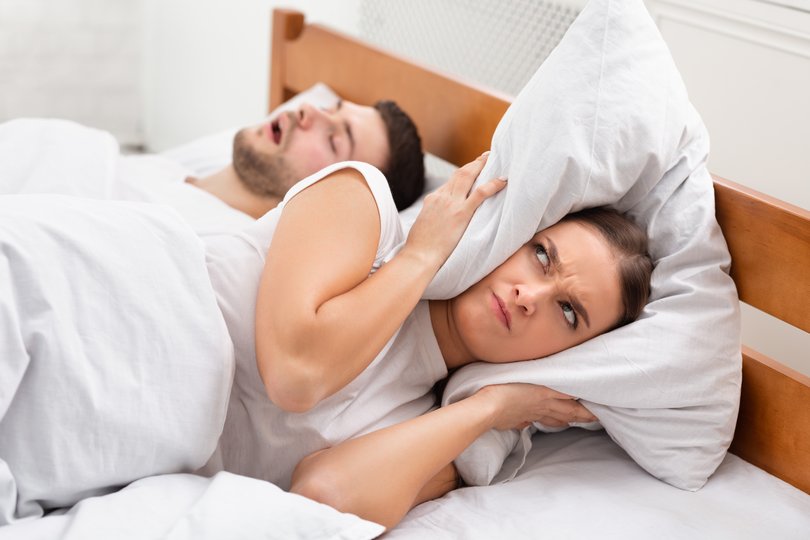How to stop snoring: This laser beam trial treatment offers a new solution for snorers

Firing a laser into the throat could banish snoring.
The treatment is thought to work by warming up soft tissue in the throat, triggering changes that make it firmer and stop it vibrating during sleep.
In a recent trial with more than 70 snorers, after three sessions around 70 per cent of participants stopped snoring, according to the research reported in the International Archives of Otorhinolaryngology.
Sign up to The Nightly's newsletters.
Get the first look at the digital newspaper, curated daily stories and breaking headlines delivered to your inbox.
By continuing you agree to our Terms and Privacy Policy.Now a new trial of the treatment is under way in Portugal, at the University Institute of HealthSciences, where it will be compared with a placebo.
Snoring is typically caused when the soft tissue in the mouth, throat or airways vibrates when air passes as people breathe during sleep.
In some cases, snoring is linked to obstructive sleep apnoea, when the airways temporarily collapse during sleep.
Risk factors include being overweight, sleeping on your back, drinking alcohol and smoking.
Beyond lifestyle changes, treatment depends on the cause.
For instance, a special mouthguard can bring the tongue forward to stop it from blocking the airway.
The new Yag laser treatment was carried out on 76 patients aged 50 to 70 who snored but didn’t have sleep apnoea.
The laser uses a low temperature, as while higher temperatures have been used in the past for snoring to remove excess soft tissue, there have been reports of bleeding, pain and scarring.
After an anaesthetic gel is applied, the handheld device is placed inside the mouth with the tip around 3cm from the targeted tissue at the back of the throat.
Patients have three sessions, lasting 15 minutes, two weeks apart.
Results show that 52 of those in the trial (68.4 per cent) no longer snored, while 24 (31.6 per cent) had a slight improvement.
Before the trial, 10 were graded as “epic” snorers, where the nocturnal noise had driven the spouse from the bedroom.
Six improved so much, they’d been able to welcome their partner back.

Two-thirds of participants (65.2 per cent) no longer snored even two years after treatment.
It’s thought the combination of light and warmth stimulates an increase in fibroblasts, cells that produce collagen, a protein that gives tissues their structure: this stiffens the soft tissue and causes it to contract.
This makes it less likely to collapse during sleep.
“Our study shows that using the Yag laser for soft-palate tightening yielded good results,” said ear, nose and throat specialists at Cairo University, who led the research.
There were no reported postoperative complications.
Commenting on the research, Jaydip Ray, a consultant EnT surgeon and professor of otology and neurotology at Sheffield University, said: “This is an interesting development in the non-invasive options for treating snoring.
“The current study is promising but in a small number of users.
“It is imperative to see more longer-term results in a larger number of patients.”
